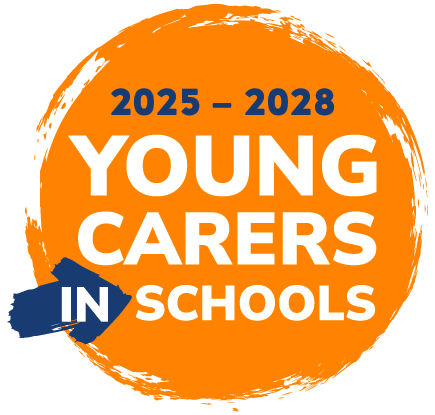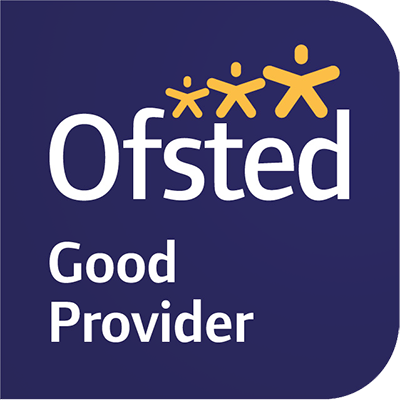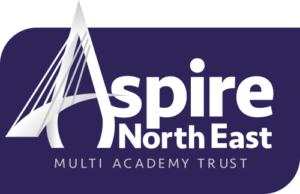Maths Curriculum Overview
Knowledge Organisers
-
• Maths Year 7 Autumn 2 -
• Maths Year 7 Spring 1 • Maths Year 10 (Foundation) Spring 1
• Maths Year 10 (Higher) Spring 1
-
• Maths Year 9 Spring 2 • Maths Year 10 (Foundation) Spring 2
-
-
- Number
- Algebra
- Ratio, proportion and rates of change
- Geometry and measures
- Probability
- Statistics
- Resilience (Aiming High, Staying Positive, Learning from Mistakes)
- Collaboration (Teamwork, Leadership, Communication)
- Creativity (Originality, Problem Solving, Independent Study)
Key Stage 3 Curriculum
Our Key Stage 3 Curriculum:
Our curriculum covers Key Stage 3 (years 7, 8 and 9) and Key Stage 4 (years 10 and 11).
The decision to follow a mastery approach to the SOW was based on the research that suggests mastery can lead to around ‘an additional five months’ progress’ for students (EEF, 2019). The new curriculum at KS3 has also been supported through developing links with Feeder Primaries and their knowledge of historically weaker strands at KS2.
Over the last 2 years we have been on a mastery journey which included the use of concrete pictoral and abstract, celebrating things like ‘BARVEMBER’, emphasising this is for all and not the weaker students. Student voice demonstrated the appreciation for mastery tools and so this is embedded into several topics within the scheme of work.
Three-year KS3 with 4.5 hours per week allocated to Mathematics.
Download the full policy at the link above for a full break down of learning for each Term.
Aim
Here at Sandhill View Academy, we aim to securely prepare all of our students for life beyond school as successful, confident, responsible and respectful citizens. We believe that education provides the key to social mobility and our curriculum is designed to build strong MAPs in the knowledge, understanding and skills which lead to academic and personal success. We want our students to enjoy the challenges that learning offers. Ultimately, we want students to ‘Know More, Do More and Go Further’
Our aims are underpinned by a culture of high aspirations. Through developing positive relationships, we work towards every individual having a strong belief in their own abilities so that they work hard, build resilience and achieve their very best.
Intent
The curriculum includes formal teaching through subject areas, assemblies and extracurricular activities. We regularly review content to ensure we continue to meet our curriculum aims. The mathematics curriculum is planned to enable all students to develop deep understanding and skills in the following areas:
All students are taught in a way which supports them to develop fluency, reason mathematically and solve problems linked to real life situations, by applying the knowledge and skills they have developed over time.
Throughout our programmes of study, every attempt is made to make explicit links to careers, the world of work and other life experiences. In addition to subject specific links, we aim to explicitly reinforce the skills and aptitudes which support employers say are important in the workplace. Maths is a core subject which has huge overlay in many fields, the transferable skills are a constant throughout the curriculum;
Literacy
We know that students who read well achieve well. As such students should use a good standard of literacy at all times including the use of capital letters, full stops and full sentences where appropriate. The mathematics department actively supports the whole school literacy priorities, including the use of the marking codes; the use of Frayer models; the use of ambitious vocabulary and any additional priorities that can help develop our students reading abilities.
Key Stage 4 Curriculum
Our Key Stage 4 Curriculum:
Our curriculum covers Key Stage 3 (years 7, 8 and 9) and Key Stage 4 (years 10 and 11).
The decision to follow a mastery approach to the SOW was based on the research that suggests mastery can lead to around ‘an additional five months’ progress’ for students (EEF, 2019). The new curriculum at KS3 has also been supported through developing links with Feeder Primaries and their knowledge of historically weaker strands at KS2.
Over the last 2 years we have been on a mastery journey which included the use of concrete pictoral and abstract, celebrating things like ‘BARVEMBER’, emphasising this is for all and not the weaker students. Student voice demonstrated the appreciation for mastery tools and so this is embedded into several topics within the scheme of work.
The KS4 Curriculum is taught over 2 years and each class has 5 hours of mathematics in classes based on ability, set changes can be made when students would see an improvement in a different classroom environment, this copuld be as simple as pace of lessons. At Key Stage 4 students follow the OCR GCSE Mathematics specification.
Download the full policy at the link above for a full break down of learning for each Term.
Skills Builder
We are also explicitly embedding transferable ‘Skills Builder’ skills such as problem solving, aiming high and teamwork to prepare our students for HAP education and employability skills for the future. We will continue to focus on PROBLEM SOLVING by applying basic techniques in an applied process integrated with other processes in different contexts. Furthermore, we want our students to STAY POSITIVE and be able to regulate their emotions, analyse their solutions, and work through set backs
How does our Curriculum cater for students with SEND?
- A belief that studying maths is worth it (value)
- A growth mind set (belief)
-
A recognition that learning is challenging but it is worth it (effort)
Specific approaches which are used within all of our mathematics lessons (including within nurture, foundation and higher schemes of learning) include:
- Seating to allow inclusion
- Differentiation activities to stretch and support in all lessons
- Resources are accessible yet challenging
- Displays and visual learning tools are used where necessary
- Where appropriate support from additional adults is planned to scaffold students learning
- Group work and discussion
- Clear teacher/student communication
- Feedback that allows students to make progress, whether written or verbal
- Independent study/homework.
- Intervention when required
How does our curriculum cater for disadvantaged students and those from minority groups?
As a school serving an area with high levels of deprivation, we work tirelessly to raise the attainment for all students and to close any gaps that exist due to social contexts. The deliberate allocation of funding and resources has ensured that attainment gaps are closing in our drive to ensure that all pupils are equally successful when they leave the Academy. More specifically within the teaching of mathematics, we;
- Work to identify barriers, interests and what might help each
pupil make the next steps in learning using lead practitioner research and actions to support. - Provide targeted support for under-performing pupils during
lesson time, such as targeted questioning, live marking and seating, in addition to revision lessons and intervention outside school hours. - Analyse class data and assess where gaps arise between pp and non-pp to provide targeted support during lesson time, in addition to revision lessons outside of school.
- Use strategies best suited to addressing individual needs, rather than just fitting pupils into their existing support strategies
- Ensure there are opportunities for students to make use of resources and gain homework support outside of lesson time through the use of Teams
- Provide students with revision materials to reduce financial burden on families
How do we make sure that our curriculum is implemented effectively?
The mathematics department is responsible for designing the mathematics curriculum and the Curriculum leader is responsible for monitoring its implementation. The leader also has the support of a number of staff to do this including the Headteacher (a mathematics specialist); the Assistant Headteacher; one Lead Practitioner and the Second in Department.
The curriculum leader ensures staff have access to professional development and training to ensure the curriculum requirements are met. This training includes wider pedagogical training delivered through whole school CPD but also training on areas more specific to department priorities. External guests have come and delivered, the further maths support project have been an ever-present including mastery and further maths sessions. This CPD may include areas such as subject knowledge development to support our recently qualified and non-specialist teachers. At times maths specific CPD will also take place across the trust, in order to enhance teaching and further pupil progress. Staff within the department are also encouraged to participate in and have delivered particular CPD in areas they specialise in or are particularly strong in. Across the MAT we have staff who mark for a range of exam boards at a number of levels, and so are able to provide vital CPD to the rest of the department to ensure reliability of data. In 2023-24 the timetable has allowed the department to meet once a fortnight for vital departmental CPD.
Assessments are designed thoughtfully to assess student progress and also to shape future learning. In house end of topic tests are after each topic in all years 7-10. Effective assessment informs staff about areas in which interventions are required. These interventions are delivered during curriculum time to enhance pupils’ capacity to access the full curriculum. Assessments are checked for reliability within departments and across the Trust. Gap analysis spreadsheets are used to identify areas of development for students and the maths department. Gap analysis is used by the curriculum leader to assess changes which may need to be made within the curriculum.
Curriculum resources are selected carefully and reviewed regularly. Designing shared resources as a department allows for career development opportunities for staff and ensures staff are in touch with the sequence of learning and lessons. Shared resources are made by all, each member of the department is responsible for a year group and so must provide a holistic set of resources for each topic allowing class teachers to edit appropriately for their classes.
As part of this staff are regularly asked to give feedback on the curriculum and our Lead Practitioner keeps up to date with the most recent research and makes changes to our schemes of work as appropriate, in consultation with the curriculum leader. The curriculum leader’s monitoring is validated by senior leaders.
Numeracy
We also recognise that for the mathematics curriculum to be successful numeracy should be a valued part of the wider school community. As such the mathematics department works closely with other departments to ensure the curriculum supports the needs of other subject areas and the learning of our students. To do this we regularly review our curriculum and audit departments to ensure content is delivered in the correct sequence and make changes when it is not. A calculation policy to ensure consistency in the teaching of method across all subjects in the MAT.
How do we make sure our curriculum is having the desired impact?
We regularly review our curriculum and consider our schemes of work to be live documents which can always be improved. We triangulate using the following methods to ensure our curriculum is having the desired impact:
- Examination results analysis and evaluation
- Termly assessments based upon prior learning for retrieval-analysis and evaluation meetings
- Lesson observations
- Learning walks for KS3 and KS4 based upon departmental priorities
- Work sample for each year group cross referenced against milestone assessment end points
- Regular feedback from teaching staff during department meetings
- Regular feedback from Middle Leaders during curriculum meetings
- Pupil Surveys
- Parental feedback





